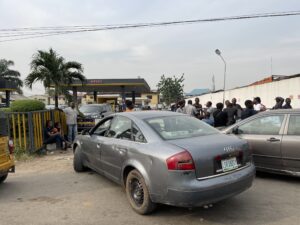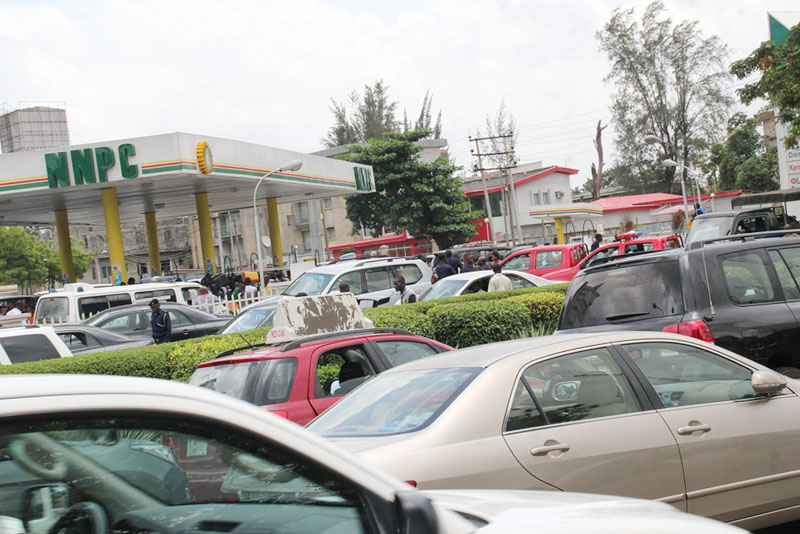Fuel scarcity is getting worse as more Nigerians battle to get supplies for domestic use.
Survey around Lagos metropolis have revealed that the few fuel stations that have products to sell are filled with frustrated buyers many of those who claim to spend hours at the stations.
This is coming despite the authorities claiming that there are enough supplies.
However, there is confusion over the exact approved pump price giving the back and forth between marketers and regulators who seem not to agree on a price.
The National Public Relations Officer of the Independent Petroleum Marketers Association of Nigeria, Chief Ukadike Chinedu, had been quoted in media reports to state that NNPC was currently finding it tough to continue subsidising PMS.
“The least that NNPC can sell petrol is over N400/litre to depots and not at N145/litre, but because of subsidy, which is becoming over-bearing on them, the oil firm has been struggling to subsidise,” he stated.
He added, “That is why you see the lapses. The government is looking for dollars to import this product and pay the contractors importing for NNPC, and it is also trying to subsidise PMS.”
Ukadike explained that the landing cost of PMS in Nigeria was about N450/litre, as he noted that subsidy on PMS was no longer sustainable.
“The government will not continue to be Father Christmas and cripple the economy. Subsidy must stop!” he stated.
READ ALSO:
- Nigerian Govt Warns Travelers Going to UK, US to Be Wary of Robbery, Attacks
- I’m Committed To Leave Legacy Of Credible Polls For West Africa Not Only Nigeria-Buhari Tells ECOWAS Parliament
- Buhari’s In-law, Sani Shaaban Dumps APC in Kaduna
At the Conoil station in Ojodu Lagos on Tuesday, the queue went as long as a kilometer from the filling station while
Those who wished to buy inside containers Formed a much longer queue.
Though the NNPC outlet at Omole had a very short queue, attendants were not selling at the time the NPO Reports correspondent visited.
A marketer who responded to NPO Reports’s inquiries but pleaded not to be named said Nigerians are likely to experience fuel scarcity till next year.

“At the heart of this complex issue is the fact that investors believe that they have recorded too much loss. The regulators appear to have lost control and much of the burden have been passed on to marketers while the government still makes it look like they are the bad ones. If care is not taken, the situation will persist like this till next year.”


